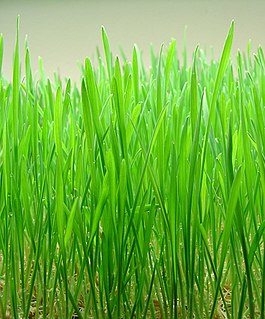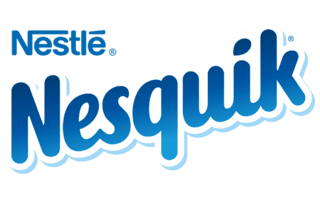The topic of this article may not meet Wikipedia's general notability guideline .(May 2009) (Learn how and when to remove this template message) |
| Type | energy nutrition drink |
|---|---|
| Manufacturer | Harvest Hill Beverage Company |
| Country of origin | United States |
| Introduced | 1960 |
| Variants |
|
| Website | www |
Nutrament is a nutritional vitamin drink currently owned by Harvest Hill Beverage Company. It was originally distributed by Mead Johnson Nutritionals, beginning in the late 1960s. [1] Current[ when? ] flavors on the market are vanilla, chocolate, strawberry, coconut, banana, cappucino, dulce de leche, mango and eggnog. The product is supplied as individual 12 fluid ounce servings in pull-top cans. According to the product's website, Nutrament currently[ when? ] is available only in regional areas of the United States, mostly in New York and Florida, although internet stores also have it available. [2] It is also available in Canada, the Caribbean, and the United Kingdom.

A vitamin is an organic molecule (or related set of molecules) that is an essential micronutrient that an organism needs in small quantities for the proper functioning of its metabolism. Essential nutrients cannot be synthesized in the organism, either at all or not in sufficient quantities, and therefore must be obtained through the diet. Vitamin C can be synthesized by some species but not by others; it is not a vitamin in the first instance but is in the second. The term vitamin does not include the three other groups of essential nutrients: minerals, essential fatty acids, and essential amino acids. Most vitamins are not single molecules, but groups of related molecules called vitamers. For example, vitamin E consists of four tocopherols and four tocotrienols. The thirteen vitamins required by human metabolism are: vitamin A (as all-trans-retinol, all-trans-retinyl-esters, as well as all-trans-beta-carotene and other provitamin A carotenoids), vitamin B1 (thiamine), vitamin B2 (riboflavin), vitamin B3 (niacin), vitamin B5 (pantothenic acid), vitamin B6 (pyridoxine), vitamin B7 (biotin), vitamin B9 (folic acid or folate), vitamin B12 (cobalamins), vitamin C (ascorbic acid), vitamin D (calciferols), vitamin E (tocopherols and tocotrienols), and vitamin K (quinones).

Vanilla is a flavoring derived from orchids of the genus Vanilla, primarily from the Mexican species, flat-leaved vanilla (V. planifolia). The word vanilla, derived from vainilla, the diminutive of the Spanish word vaina, is translated simply as "little pod". Pre-Columbian Mesoamerican people cultivated the vine of the vanilla orchid, called tlīlxochitl by the Aztecs. Spanish conquistador Hernán Cortés is credited with introducing both vanilla and chocolate to Europe in the 1520s.

Chocolate is a usually sweet, brown food preparation of roasted and ground cacao seeds that is made in the form of a liquid, paste, or in a block, or used as a flavoring ingredient in other foods. The earliest evidence of use traces to the Olmecs, with evidence of chocolate beverages dating to 1900 BC. The majority of Mesoamerican people made chocolate beverages, including the Maya and Aztecs. The word "chocolate" is derived from the Classical Nahuatl word chocolātl.
In official records, it is described as "Nutritionally Complete Food Consisting Principally of Milk Solids, Maltose-Dextrins, Soy Flour, Sucrose". The original purpose of Nutrament was as a recovery drink for athletes. [1] Late in the 1960s, a powdered form was offered for mixing with milk, but that brand registration was not renewed in 1988 and officially expired in 1992, still owned by Mead Johnson.
The current formulation is made of skim milk, the sweeteners sugar and corn syrup, various vegetable oils, flavorings, and vitamins and minerals. [3] Because of its high milk content, lactose intolerant people would need to take an enzyme supplement to digest the drink properly, or avoid it altogether. For other persons, the product is considered easy to digest and is a good protein source. It has been used as a meal substitute in dieting, because of its calorie portion control. Because of its low fiber content, it is useful for low-residue diets. [3]

Sugar is the generic name for sweet-tasting, soluble carbohydrates, many of which are used in food. The various types of sugar are derived from different sources. Simple sugars are called monosaccharides and include glucose, fructose, and galactose. "Table sugar" or "granulated sugar" refers to sucrose, a disaccharide of glucose and fructose. In the body, sucrose is hydrolysed into fructose and glucose.
Corn syrup is a food syrup which is made from the starch of corn and contains varying amounts of maltose and higher oligosaccharides, depending on the grade. Corn syrup, also known as glucose syrup to confectioners, is used in foods to soften texture, add volume, prevent crystallization of sugar, and enhance flavor. Corn syrup is distinct from high-fructose corn syrup (HFCS), which is manufactured from corn syrup by converting a large proportion of its glucose into fructose using the enzyme D-xylose isomerase, thus producing a sweeter compound due to higher levels of fructose.

Enzymes are macromolecular biological catalysts that accelerate chemical reactions. The molecules upon which enzymes may act are called substrates, and the enzyme converts the substrates into different molecules known as products. Almost all metabolic processes in the cell need enzyme catalysis in order to occur at rates fast enough to sustain life. Metabolic pathways depend upon enzymes to catalyze individual steps. The study of enzymes is called enzymology and a new field of pseudoenzyme analysis has recently grown up, recognising that during evolution, some enzymes have lost the ability to carry out biological catalysis, which is often reflected in their amino acid sequences and unusual 'pseudocatalytic' properties.
Mead Johnson also marketed a liquid dietary supplement under the same brand name in 1985, and registered the brand "Nutrament The Energy and Fitness Drink" in 1996. Nutrament was purchased from Mead Johnson & Company on February 13, 2004, [4] and was owned by Nestlé Health Science from 2007 to 2016, when it was sold to its current owner Harvest Hill Beverage Company.













